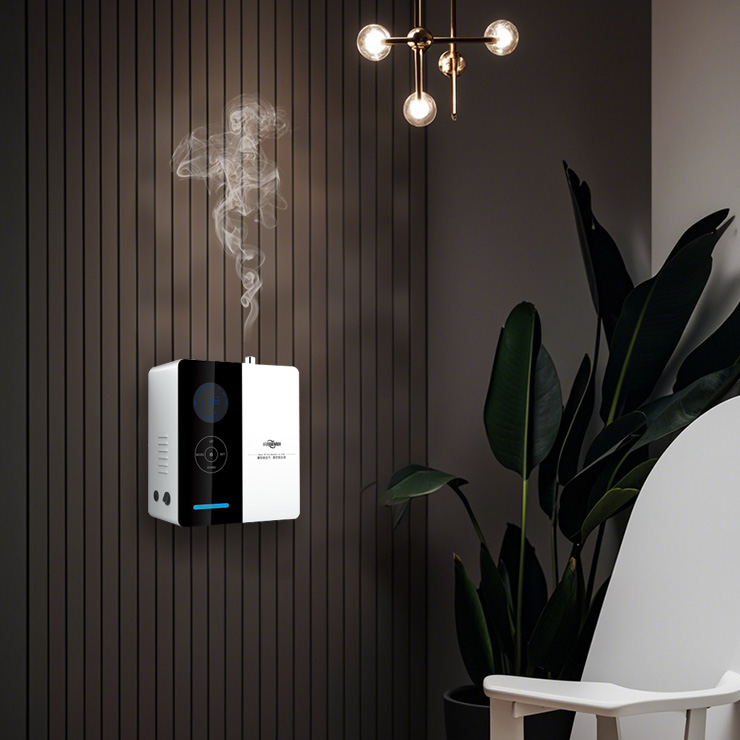The market for aroma diffuser machines, also known as scent diffuser machines, is experiencing significant growth and holds promising prospects for the future. This growth can be attributed to several factors, including the rising demand for essential oil diffusers, advancements in technology, and the increasing focus on wellness and home decor.
Rising Demand for Wellness and Aromatherapy
One of the primary drivers of the aroma diffuser market is the growing interest in aromatherapy and its associated health benefits. Consumers are increasingly seeking natural ways to improve their well-being, and essential oil diffusers provide a convenient means to achieve this. These devices are used to create relaxing, energizing, or focused environments, which can help reduce stress, improve sleep quality, and enhance mood. As a result, the essential oil diffuser machine market is projected to reach approximately $4.5 billion by 2032, up from $2.1 billion in 2023.

Technological Advancements
Technological innovations have played a crucial role in the evolution of aroma diffuser machines. Modern diffusers incorporate features such as smart connectivity, allowing users to control the devices remotely via mobile apps or voice commands. This integration of technology enhances the user experience and offers more personalized and efficient scenting solutions. For instance, some advanced air aroma diffuser machines can adjust scent intensity based on environmental factors and even learn user preferences over time. These innovations make aroma diffuser machines more appealing to tech-savvy consumers and expand their functionality in both residential and commercial settings.Growing Popularity of Smart Homes
The rise of smart home systems has further boosted the demand for scent diffuser machines. Consumers are increasingly integrating these devices into their home automation systems, enabling seamless control and convenience. This trend is particularly strong in regions like North America and Europe, where the adoption of smart devices is high. As a result, aroma diffuser machines are becoming essential components of smart home setups, contributing to their growing popularity in the market.
Expanding Applications in Various Industries
The applications of fragrance diffuser machines are not limited to residential use. They are also gaining traction in commercial sectors such as retail, hospitality, and corporate offices. Businesses are recognizing the power of scent marketing to create memorable experiences for customers and enhance brand identity. For example, hotels and spas use sophisticated fragrance diffuser systems to cultivate a distinctive ambiance that resonates with their brand image and improves customer satisfaction. This commercial adoption has driven the development of more advanced, large-scale diffuser systems capable of covering expansive areas and integrating with existing HVAC infrastructure.
Environmental and Design Considerations
Environmental sustainability is another factor influencing the market for aroma diffuser machines. Consumers are increasingly seeking eco-friendly products, and manufacturers are responding by developing diffusers that consume less power, utilize recyclable materials, and offer refillable options to reduce waste. Additionally, there is a growing emphasis on design aesthetics, with manufacturers creating visually appealing diffuser designs that can complement various home and office styles. This focus on sustainability and design has made essential oil diffuser machines more attractive to environmentally conscious and design-conscious consumers.
Challenges and Opportunities
Despite the positive outlook, the market for air aroma diffuser machines also faces some challenges. High initial costs for advanced diffuser systems may deter price-sensitive consumers, particularly small and medium-sized businesses. Furthermore, the complexity and maintenance requirements of these machines can pose a barrier, as specialized knowledge is often needed for proper upkeep and operation. However, these challenges also present opportunities for innovation and differentiation. Manufacturers can focus on developing cost-effective, user-friendly diffusers with enhanced features to cater to a broader range of consumers.
The market for aroma diffuser machines is poised for continued growth due to the increasing demand for wellness products, technological advancements, and expanding applications in various industries. As consumers become more health-conscious and seek natural ways to improve their living environments, essential oil diffuser machines will likely remain a significant player in the market. With ongoing innovations and a focus on sustainability and design, the future of fragrance diffuser machines looks promising, offering numerous opportunities for both manufacturers and consumers alike.